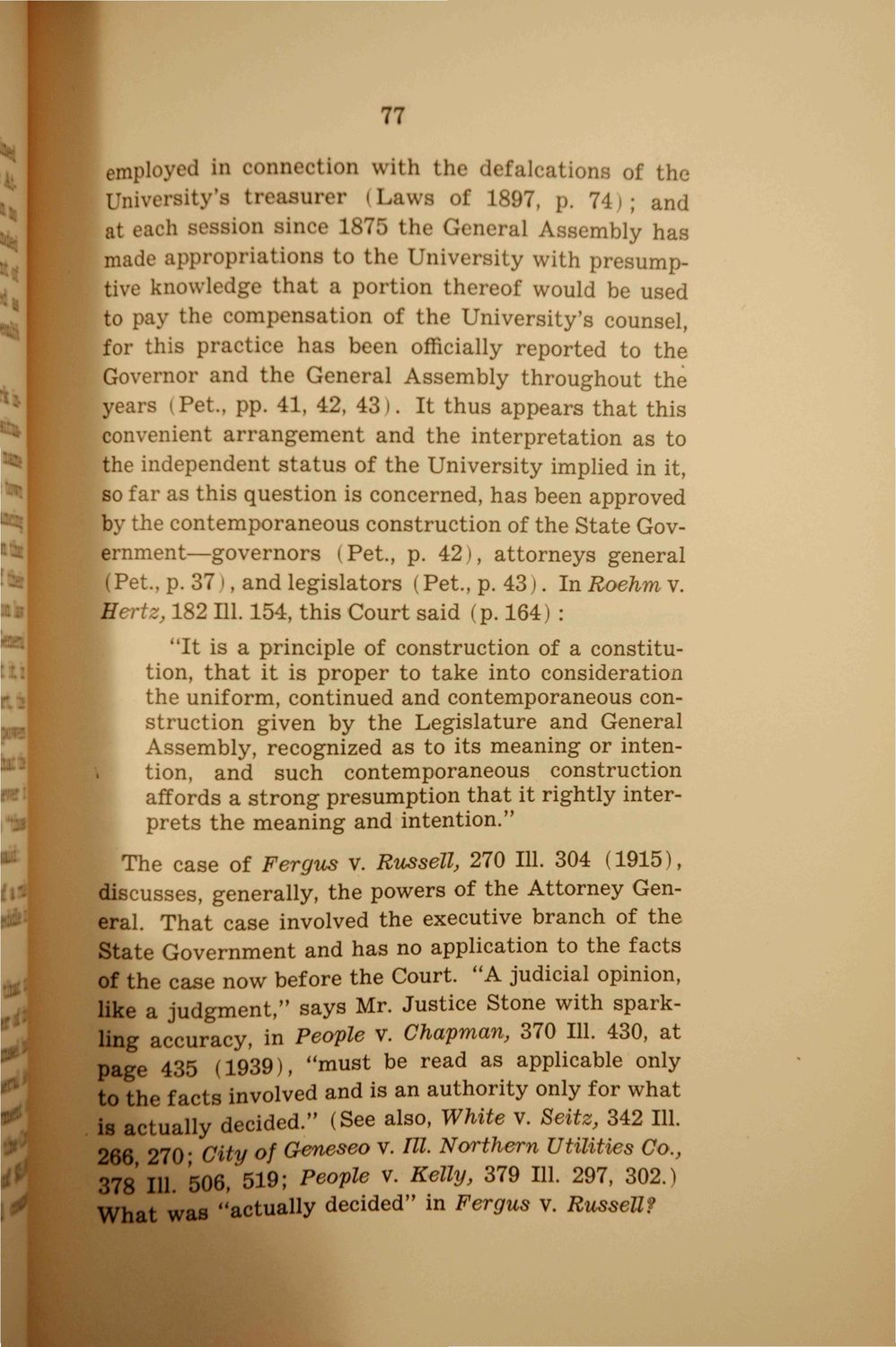| |
| |
Caption: Booklet - UI Charter of Freedom (1942)
This is a reduced-resolution page image for fast online browsing.

EXTRACTED TEXT FROM PAGE:
77 employed In connection with th defalcation of the I H "* University's t n a s u i r i Laws of 1897, p. 74); and at each session since 1875 the General Assembly has made appropriations to the University with presumptive knowledg that a portion thereof would be used to pay the compensation of the University's counsel, for this practice has been officially reported to the Governor and the General Assembly throughout the years (Pet., pp. 41, 42, 43 i. It thus appears that this convenient arrangement and the interpretation as to the independent status of the University implied in it, so far as this question is concerned, has been approved by the contemporaneous construction of the State Government—governors i Pet., p. 42 i, attorneys general (Pet., p. 37 I, and legislators (Pet., p. 43). In Roehm v. Hertz, 182 111. 154, this Court said (p. 164) : It is a principle of construction of a constitution, that it is proper to take into consideration the uniform, continued and contemporaneous construction given by the Legislature and General Assembly, recognized as to its meaning or intention, and such contemporaneous construction affords a strong presumption that it rightly interprets the meaning and intention." The case of Fergus v. Russell, 270 111. 304 (1915), discusses, generally, the powers of the Attorney General. That case involved the executive branch of the State Government and has no application to the facts of the case now before the Court. "A judicial opinion, like a judgment," says Mr. Justice Stone with sparkling accuracy, in People V. Chapman, 370 111. 430, at page 435 (1939), "must be read as applicable only to the facts involved and is an authority only for what is actually decided." (See also, White v. Seitz, 342 111. 2G6 270 * City of Geneseo v. III. Northern Utilities Co., ;78 111. 506, 519; People v. Kelly, 379 111. 297, 302.) What was "actually decided" in Fergus v. Russell? II
| |